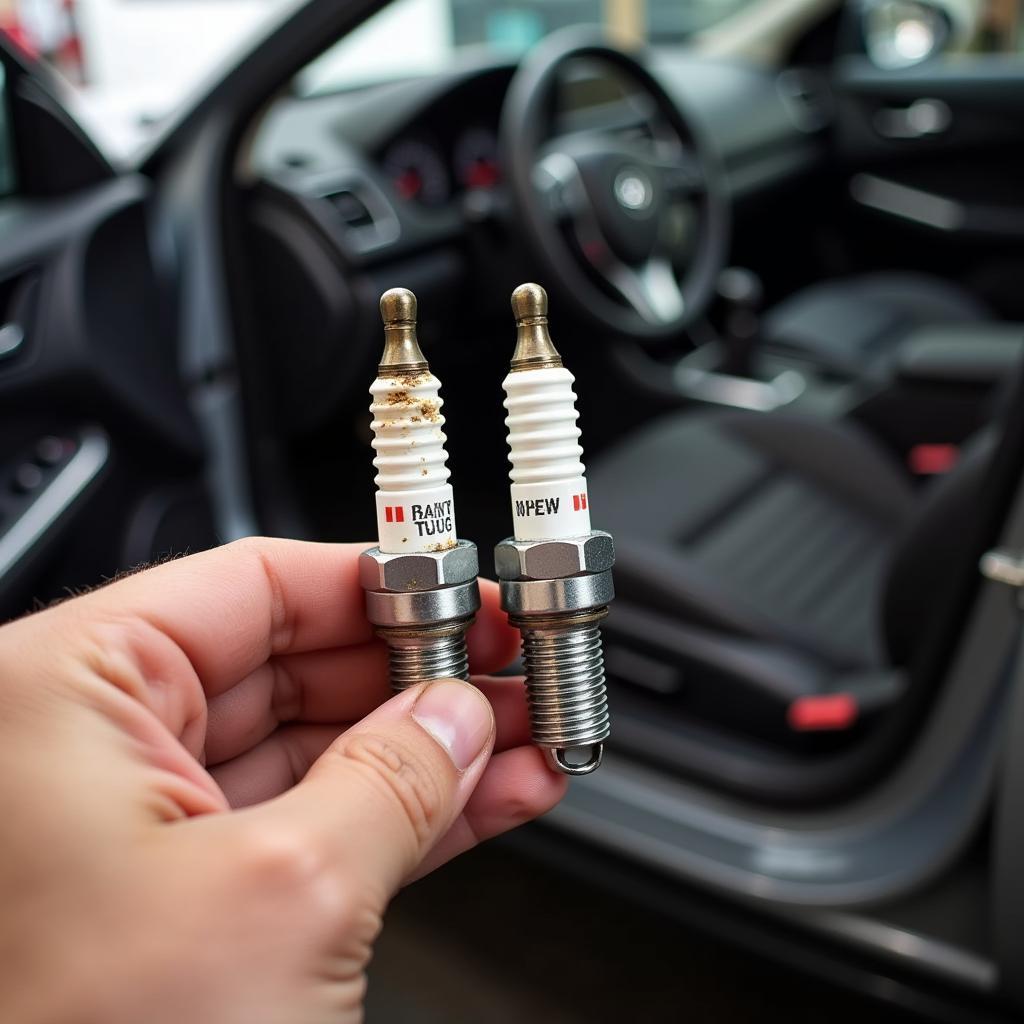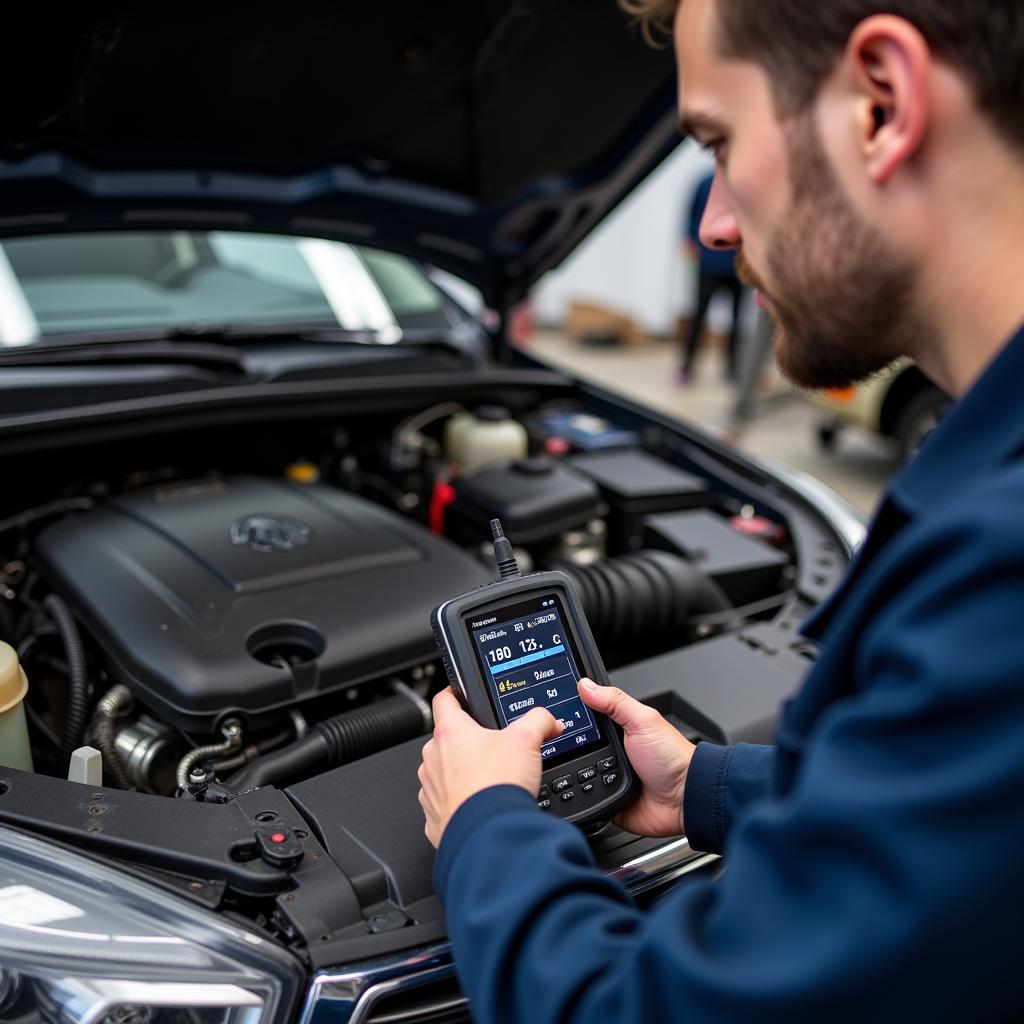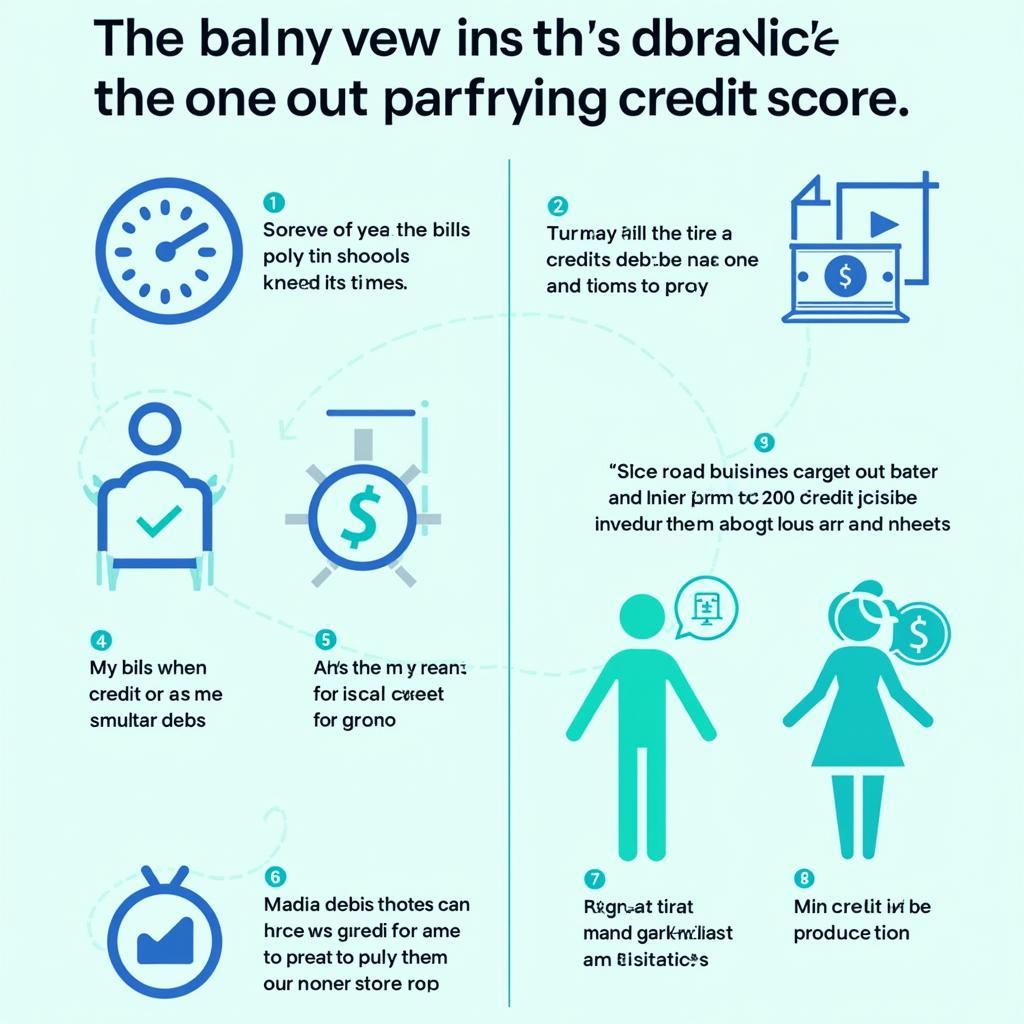Experiencing slow, jerky acceleration can be frustrating and potentially dangerous. This guide delves into the common causes of Car Slow Jerky Acceleration Problems, offering solutions and maintenance tips for car owners, mechanics, and technicians.
A variety of issues can lead to jerky acceleration, ranging from simple maintenance oversights to more complex mechanical failures. Understanding these potential culprits is crucial for effective troubleshooting and repair. This article will help you diagnose and fix those frustrating car slow jerky acceleration problems.
Understanding Car Slow Jerky Acceleration Problems
Jerky acceleration is often characterized by a hesitant, uneven surge of power when you press the accelerator. It can feel like the car is bucking or stuttering, rather than accelerating smoothly. Is your car exhibiting these symptoms? If so, let’s explore the potential causes.
Common Causes of Jerky Acceleration
-
Dirty Fuel Injectors: Clogged fuel injectors disrupt the proper flow of fuel into the engine, resulting in an uneven fuel-air mixture and jerky acceleration. Regular fuel system cleaning can prevent this issue. Check out resources for club car controller problems for similar issues in electric vehicles.
-
Faulty Mass Airflow Sensor (MAF): The MAF sensor measures the amount of air entering the engine. A malfunctioning MAF sensor can provide inaccurate readings, leading to an incorrect fuel-air mixture and subsequently, jerky acceleration.
 Car with Jerky Acceleration Due to Worn Spark Plugs
Car with Jerky Acceleration Due to Worn Spark Plugs
-
Worn Spark Plugs: Spark plugs ignite the fuel-air mixture in the engine cylinders. Worn spark plugs can misfire, causing incomplete combustion and jerky acceleration, especially during acceleration.
-
Transmission Problems: Issues with the transmission, such as low transmission fluid or a failing torque converter, can also cause jerky acceleration. This is especially noticeable when shifting gears. Sometimes, similar issues can even be found in electric golf carts, so resources on club car electric golf cart accelerator problems might provide additional insights.
-
Vacuum Leaks: Leaks in the engine’s vacuum system can disrupt the airflow and fuel delivery, causing rough idling and jerky acceleration.
Diagnosing and Fixing Jerky Acceleration
Identifying the exact cause of jerky acceleration requires a systematic approach. Start by checking the simplest and most common causes, such as dirty fuel injectors and worn spark plugs.
Step-by-Step Troubleshooting Guide
-
Check the Check Engine Light: If the check engine light is illuminated, retrieve the diagnostic trouble codes (DTCs) using an OBD-II scanner. These codes can pinpoint the specific system or component causing the problem.
-
Inspect the Air Filter: A clogged air filter restricts airflow to the engine and can cause jerky acceleration. Replace the air filter if it’s dirty.
-
Clean the Fuel Injectors: Use a fuel injector cleaner additive or have a professional clean the injectors thoroughly.
-
Inspect and Replace Spark Plugs: Check the condition of the spark plugs and replace them if they are worn or fouled.
-
Check for Vacuum Leaks: Inspect the vacuum hoses and connections for leaks. A hissing sound or a noticeable change in engine idle speed can indicate a vacuum leak. You might find relevant information about electric vehicle problems in resources related to gem electric car problems.
 Car with Jerky Acceleration – Mechanic Checking Engine
Car with Jerky Acceleration – Mechanic Checking Engine
-
Check Transmission Fluid: Ensure the transmission fluid is at the correct level and in good condition. Low or dirty transmission fluid can contribute to jerky acceleration. For specific throttle issues, particularly in golf carts, resources like [club car precedent throttle problems](https://autotippro.com/club car precedent throttle problems/) may be helpful.
-
Consult a Professional: If the problem persists, consult a qualified mechanic for a thorough diagnosis and repair. They have the expertise and equipment to identify complex issues. Issues with electric vehicles like golf carts can offer insights into similar problems in conventional cars. You might find helpful information in resources addressing club car problems.
“Regular maintenance is key to preventing jerky acceleration. Keep your engine tuned, replace worn parts promptly, and address any warning signs immediately,” advises John Smith, ASE Certified Master Technician.
Conclusion
Car slow jerky acceleration problems can stem from several factors, but with proper diagnosis and timely maintenance, these issues can be resolved. By understanding the potential causes and following the troubleshooting steps outlined above, you can get your car back to accelerating smoothly and safely. If you are still experiencing problems, please contact AutoTipPro at +1 (641) 206-8880 or visit our office at 500 N St Mary’s St, San Antonio, TX 78205, United States. We are here to help you get back on the road!





Leave a Reply